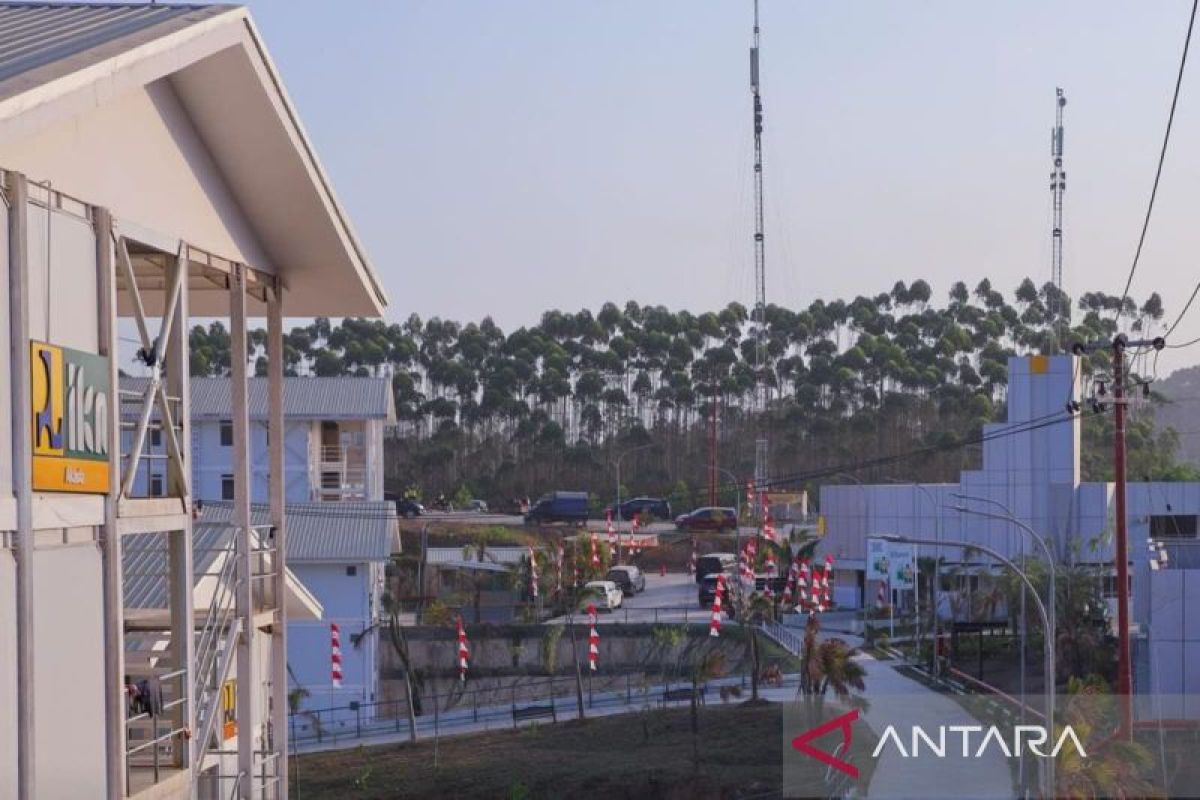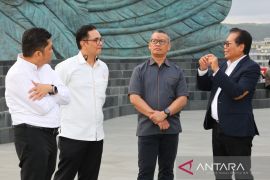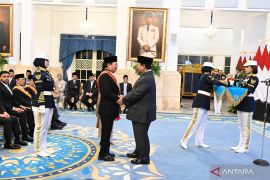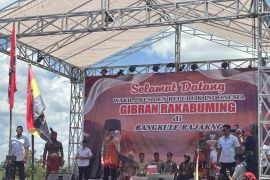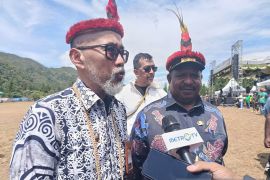The rapid infrastructure growth in the new capital reflects how Nusantara's development can provide benefits to local communities, especially those in East Kalimantan.
The province, which has a variety of cultures and local wisdom, has a central role in the new capital's development. Its people comprise not only the original residents, but also the providers of potential human resources that could contribute to various sectors.
In this regard, the Nusantara Capital Authority (OIKN) has made local community empowerment one of the main focuses of Nusantara development.
Several strategies and programs have been implemented to ensure the participation of the community as the main actors in the development process.
"Nusantara development will open millions of new jobs in various sectors, such as construction, infrastructure, tourism, and creative economy," OIKN's director of community empowerment, Cornita Ermanto, said.
However, there are also challenges that will need to be responded to correctly given that competition to get jobs will be tight. Moreover, not all local residents have the skills needed by modern industries.
Human development
The OIKN's initial step for human development around the new capital is identifying labor needs. By understanding the type of work required, appropriate training can be provided to the people of East Kalimantan, with certification given as proof of their competency.
The OIKN has so far established cooperation with the Ministry of Manpower to ensure that the training and certification programs run well.
The ministry's Job Market Center (Pasker ID) information system has a vital role in providing platforms and information for job seekers in the new capital area.
The SIAPKerja pavilion at Tengin Baru in Sepaku, North Penajam Paser, has been activated and improved to help East Kalimantan residents get job information and participate in training.
The OIKN is also planning to build a Job Market Center in Nusantara to support the matching of vacant jobs and competent workers.
As a global city, Nusantara will need a workforce of not only national but global-level competency. The training provided to local communities is focused on developing the skill set needed to meet international standards.
In September 2024, around 3 thousand people will come to Nusantara to live and work. The need for workers in various sectors, such as construction, hospitality, and culinary, will continue to increase.
The OIKN is collaborating with the manpower and transmigration offices of East Kalimantan province as well as North Penajam Paser and Kutai Kartanegara districts to ensure that local communities are prioritized in filling job vacancies.
The presence of Nusantara in East Kalimantan is projected to push up regional economic growth. By being a part of the new capital development project, local residents can derive economic benefits and increase their income.
Synergy in building human resources
The relocation of Indonesia's capital to East Kalimantan has brought big opportunities for local communities, including jobs. To prepare competent human resources, the Manpower and Transmigration Office of East Kalimantan province is actively synergizing with the OIKN.
The office's head, Rozani Erawadi, affirmed that his office is intensively communicating with the OIKN to identify the needs and challenges in providing workers for capital development so that the right training can be given.
The training programs are being carried out as per the National Professional Certification Agency (BNSP) standards to improve workforce quality in East Kalimantan.
The training programs have been welcomed enthusiastically by the people. For instance, at the Balikpapan Industrial Job Training Center (BLKI), against a quota of one thousand training participants funded by the regional budget, the number of registrants reached four thousand.
The Manpower and Transmigration Office of East Kalimantan province is making various efforts to improve workforce quality, including providing competency-based training for various fields of jobs, such as construction, hospitality, and tourism.
The office is also collaborating with the Professional Certification Institution (LSP) to ensure the quality of training and certification programs.
The East Kalimantan government is also monitoring the training participants to ensure they get a job that is in keeping with their competency.
The training programs have shown a positive result with around 70 percent of participants finding employment.
Strengthening vocational education
East Kalimantan is currently facing many challenges, one of which is the high rate of unemployment among graduates of vocational high schools (SMK)
Sri Hartono, the head of East Kalimantan SMK Principals Forum, stated that the issue of unemployment must be studied closely.
One of the solutions is aligning the curriculum of SMK to worker needs in Nusantara, which are centered on information technology, construction, and tourism.
There is optimism that in the next few years, the unemployment rate among SMK graduates in East Kalimantan will decline through the efforts made by the government and SMK to improve the quality of graduates. One of them is the LSP and the presence of hundreds of assessors deployed by the East Kalimantan Education and Culture Office in 10 districts and cities.
The development of Nusantara is not only about relocating the capital city and building infrastructure, but also about developing human resources.
By providing opportunities and training programs to East Kalimantan residents, the OIKN is committed to creating a prosperous and inclusive future for all.
Related news: Started working from IKN Nusantara: Transportation Minister
Related news: PUPR Ministry readying 14 ministerial homes for I-Day at IKN
Related news: Nusantara Capital City to boost equitable economy: Indonesian minister
Translator: Ahmad Rifandi, Raka Adji
Editor: Azis Kurmala
Copyright © ANTARA 2024
